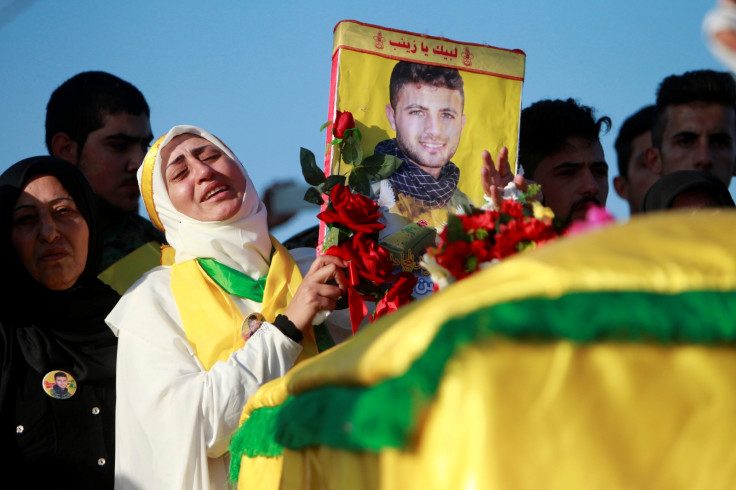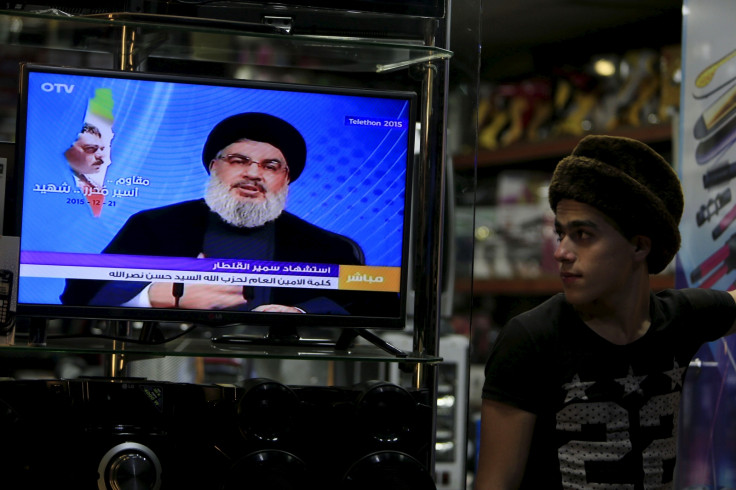How fighting for Bashar al-Assad in Syria made Hezbollah a force to be feared
The Iranian-backed militia has lost both men and legitimacy - but gained experience

As Aleppo fell, social media accounts began sharing an image that merged two historic battles with the Dome of the Rock. The intentwas clear, the Shia would one day fight for Jerusalem as the Iranians had fought Iraq at Khorramshahr in 1980 and Hezbollah had in 2016 against Sunni militias in Syria's second city.
Hezbollah wanted to remind its supporters that while it was currently embroiled in Bashar al-Assad's campaign in Syria, it had not forgotten about the old enemy, Israel. Hezbollah's wide support across the Middle East has been largely due to its willingness to fight the Israelis: it was born amid Israeli occupation in 1982 and fought a 2006 conflict in southern Lebanon that it is widely considered to have 'won'.
But Hasan Nasrallah's decision to go to war in Syria in 2013 was divisive in Lebanon. Syria occupied Lebanon for 30 years until 2006 – a year after it was implicated in the assassination of poplar president Rafik Hariri – and had meddled in its politics ever since. Even in the poor suburbs that were Hezbollah's base, Shia Lebanese wondered why their sons were fighting and dying in a war that nothing to do with them.
"Hezbollah may say that the road to Jerusalem goes through Damascus, but that is just bad geography," said Matthew Levitt, author of Hezbollah: The Global Footprint of Lebanon's Party of God.
Image circulated by the Iranian regime circles following #AleppoVictory: We reached Khoramshar, we reached Aleppo, we'll reach Jetusalem too pic.twitter.com/BJXnlOGRRj
— Shiapulse (@shiapulse) December 16, 2016
Hezbollah likely had little choice but to join Assad in his campaign in Syria. Hezbollah's primary supporter has always been Iran, which in turn backs Assad in Syria. Hezbollah may be a Lebanese movement that has members in the country's parliament and governs swathes of the country, but it is aware who butters its bread. Without Iran, Hezbollah would have far less money – and far fewer guns.
But over the past three years, that relationship has gone from transactional to almost symbiotic. Most analysts agree that Assad could not have fought for so long without the battle-hardened fighters of Hezbollah. Early in the war there were stories of desertions and low morale in Assad's underpaid and largely conscripted forces. It was the well-trained militia fighters of Hezbollah that led the Syrian army in both Palmyra and Aleppo.
This has been mirrored in Iraq, where Iranian-backed militias have led the take back of cities like Tikrit and Ramadi and are now at the forefront of the battle for Mosul. It is not clear whether the Lebanese Hezbollah currently has forces in Iraq, but they have between 6,000 and 10,000 soldiers in Syria. It is believed that it has lost over 1,200 men since joining the Syrian conflict, with many thousands more injured.

The reputational damage has also been severe. When Hezbollah was waging war with Israel in the south, Arabs of all denominations could get behind its defence of both Lebanon and the Palestinians – but Assad's brutality in dealing both with pro-democracy protests and later the insurgency has shocked the Middle East and the world. Hezbollah, in propping him up, can't avoid being complicit.
"Hezbollah has gone from a place where it was seen as the vanguard of legitimate Arab opposition to being a tool of a repressive Assad government controlled by the Iranians," said Julien Barnes-Dacey, a Syria expert at the European Council on Foreign Relations. "It is losing its sense of regional legitimacy as a direct consequence of intervening in Syria."
The question of how Hezbollah has changed both logistically and politically as a movement has been asked frequently over the border in Israel, where the Lebanese movement has long been considered a far greater threat than Hamas, the Palestinian militant group that controls the Gaza Strip. On the one hand, Hezbollah has been distracted in Syria and not threatened Israel – on the other, it is gaining valuable experience fighting for Assad.
The best thing that ever happened to Hezbollah was the rise of Daesh and the Salafi jihadi bogeyman.
"This experience in Syria has better qualified Hezbollah as a fighting force. Hezbollah is no more an organisation, it is an army. It used to exert guerrilla tactics and terror tactics, now it is fighting as an armed force," said Yoram Schweitzer, head of the INSS Program on Terrorism and Low Intensity Conflict and a former anti-terrorism consultant at the Israeli Ministry of Defence.
The nightmare scenario for Israel is if Assad is triumphant in Syria and repays Hezbollah with money and weapons. Its heavily-armed, battle-hardened fighters may then decide to head back to southern Lebanon and pick a fight with Israel. That said, the one thing that united both sides in the Syrian conflict – whether Hezbollah or al-Qaeda linked Jabat al-Nusra – is a hatred of the Israeli state.
When it comes to Hezbollah's standing in Lebanon, the rise of Islamic State (Isis) has actually been useful in mitigating any anger from Lebanese Shia about the number of young men being killed in Syria. Isis rhetoric is largely based on an abject hatred of Shia, wherever they may be: in the face of rising sectarianism across the Middle East, Hezbollah are seen as the last vanguard against Sunni jihadis making inroads into Lebanon.
"The best thing that ever happened to Hezbollah was the rise of Daesh and the Salafi jihadi bogeyman. People [...] don't have the luxury of being angry at Hezbollah anymore because the fact is it is probably is the only entity that can partner with the [Lebanese army] and successfully defend regular Sunnis, Maronite and Druze from the Salafi jihadis at the gate," said Levitt.
But that may change. Lebanon's demographics are shifting as the country is swelled by over one million Syrian refugees, nearly all of them Sunnis who have fled Assad. Syria shows little chance of being stabilised soon, so it is likely most of these refugees will settle in the country. "These are very angry Sunnis – [and] they are angry not just at anybody, but at Hezbollah," Levitt said.
© Copyright IBTimes 2025. All rights reserved.






















